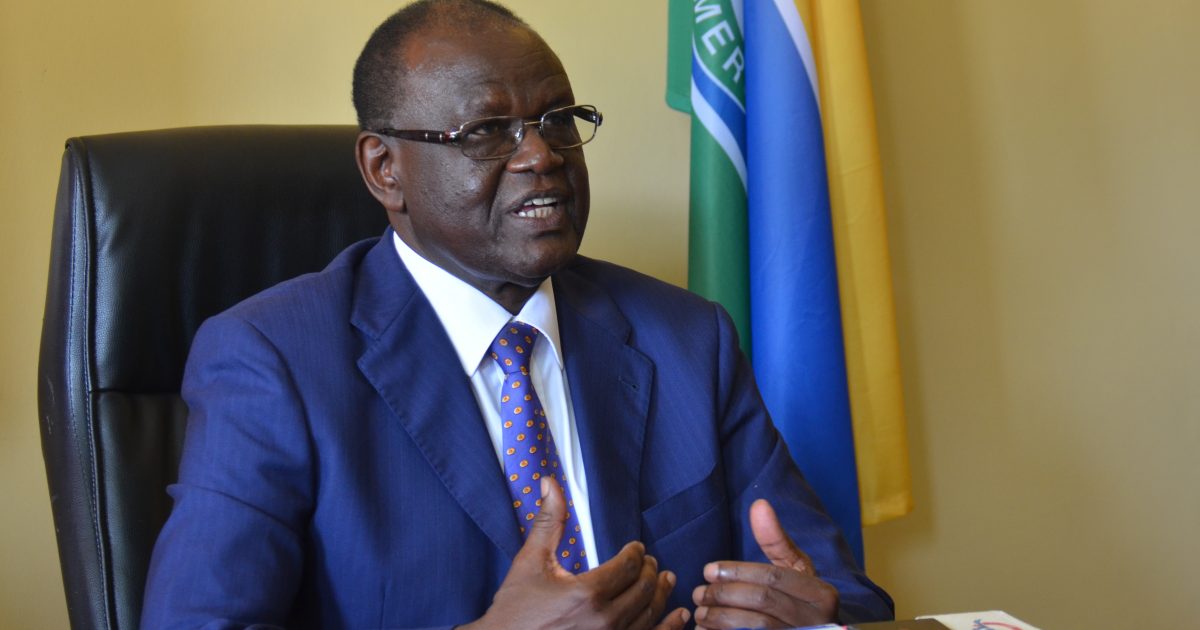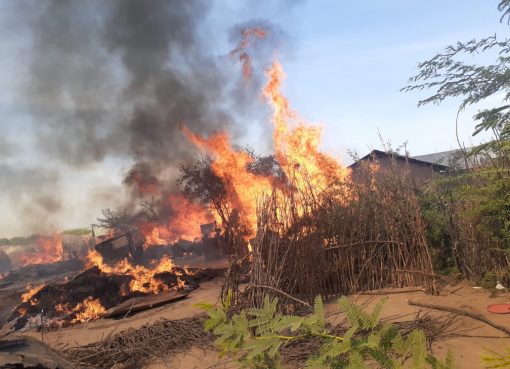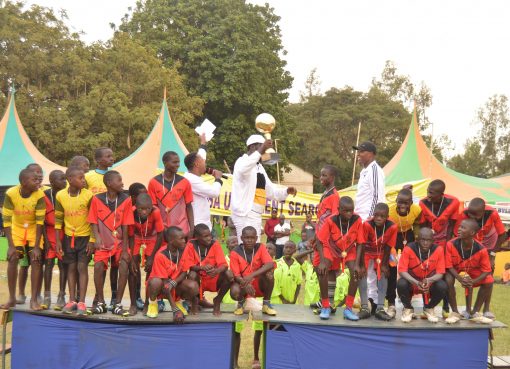A condolence book has been opened at Nyayo House, Nairobi for those wishing to pay their respects to former President Daniel Toroitch arap Moi who passed on Tuesday morning at a Nairobi Hospital.
The Nairobi Regional Commissioner (RC), Wilson Njega who was the first to sign the book said it will be available from Wednesday February 5, until 12th when the former President will be laid to rest.
He said the condolence book placed at the main entrance of the building will be availed daily during working hours for civil servants and residents of Nairobi region.
“I welcome all Nairobi residents to visit the region headquarters at Nyayo House and other Ministry headquarters where condolence books have been availed to sign their messages,” said Njega.
In a message sent on behalf of Nairobi region, National Government Administration and public servants, the Regional Commissioner expressed their heartfelt condolences to the family of former President Moi and the Kenyan public at large following the sad demise of the second President of the nation.
Condolences received from various leaders from Kenya and across the globe have eulogized the late President Moi as an African icon, statesman and patriot who sacrificed his entire life to serve the country, which he loved and cared for dearly.
The leaders said he will be remembered for his great efforts towards consolidating peace and tranquillity within the Horn of Africa and strengthening the East African Community relationship.
In Moi’s honour, President Uhuru Kenyatta said the nation will observe a period of national mourning from yesterday until the former head of state and Kenya’s second President is buried.
Meanwhile, the Meru Governor, Kiraitu Murungi has joined other Kenyans in hailing the former President Daniel Toroitich Arap Moi for his efforts in trying to achieve a peaceful and united country during his 24-year reign.
In his condolence message on Tuesday, Kiraitu said Moi’s dream is replicated through the Building Bridges Initiative (BBI).
Murungi described Moi as a wise and courageous leader who ensured that Kenya enjoyed uninterrupted peace and stability throughout his tenure. “Though Moi was criticized for many things including one party dictatorship and mismanaging the economy, he ensured that the country remained an island of peace,” the Meru Governor stressed.
He noted that the former president had rough time owing to the pressure from the then Young Turks who were agitating for multi-party democracy which he later allowed in 1991.
Kiraitu remembered Moi for the support he gave during the support for the amendment of the constitution
He however, said for around 10 years while he served in the National Assembly, they did have a close relationship due to the frosty relationship between the ruling party and the opposition.
“But we changed things in 1997 during the IPPG when I was appointed to chair the technical committee that had members from both KANU and the opposition. Through these reforms we removed detention without trial from our laws,” said the governor.
He elaborated that at that time they reduced the powers of the chiefs who were viewed by the opposition as tyrants.
“We also removed sedition laws where any Harambee could not be conducted without a letter from respective District commissioners. We removed all those laws which we thought were limiting the freedom of speech, freedom of assembly and freedom of association,” said Kiraitu, noting that the negotiations made him interact with close Moi allies like the late Nicolas Biwott and George Saitoti.
He explained that they had to remove the laws to further deepen democracy in the country.
The Governor said that at one time the late Nicolas Biwott was sent to him by Moi to ask him (Kiraitu) to accept an offer of being appointed as a High Court Judge but he turned down the request.
Kiraitu noted that President Moi will also be remembered for the Maziwa ya Nyayo programme which most people were beneficiaries.
“I think what he was doing is trying to create market for KCC so that farmers would earn more money from milk production,” he noted.
He added that despite having introduced almost a similar school milk programme in the county, it is not directly borrowed from the Maziwa ya Nyayo reiterating that his initiative to have it at the ECDE level is to stimulate students intellectual growth and nutrition.
By Bernadette Khaduli/Richard Muhambe





